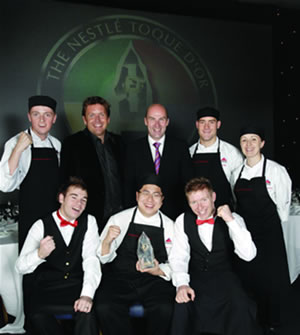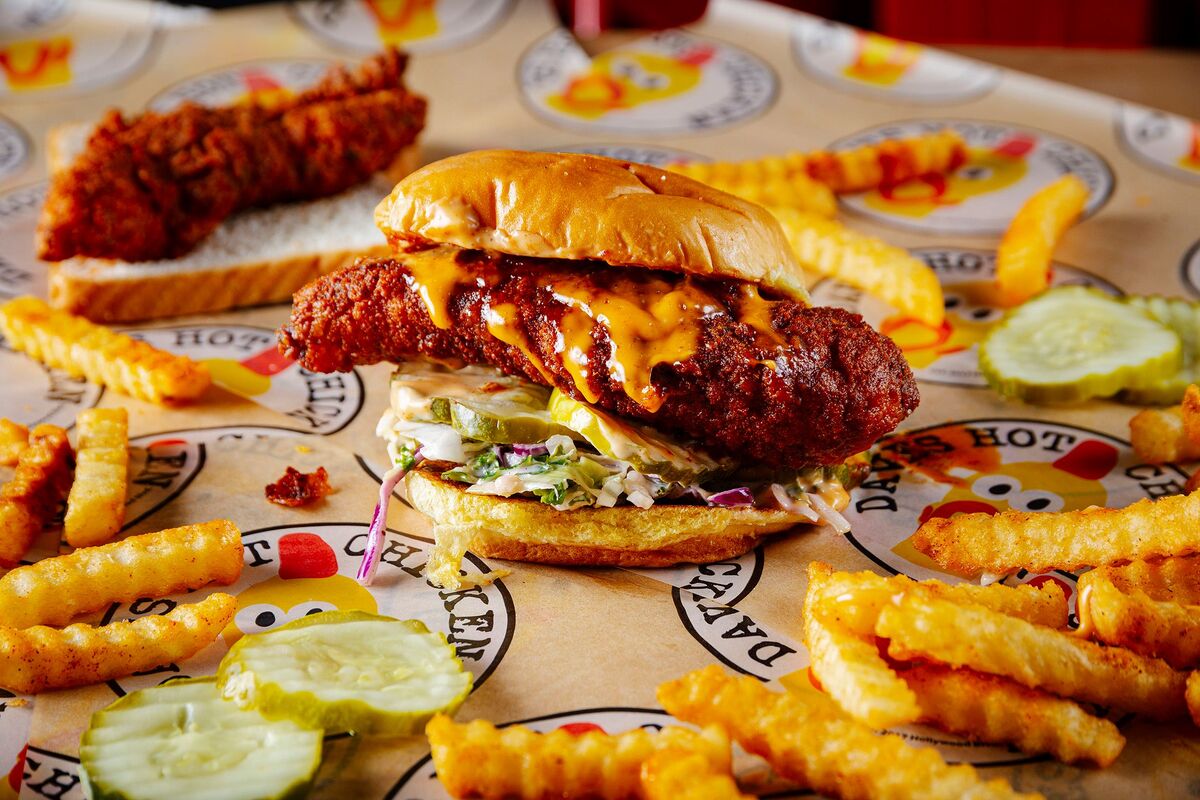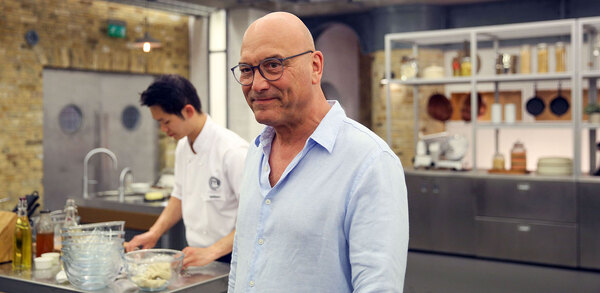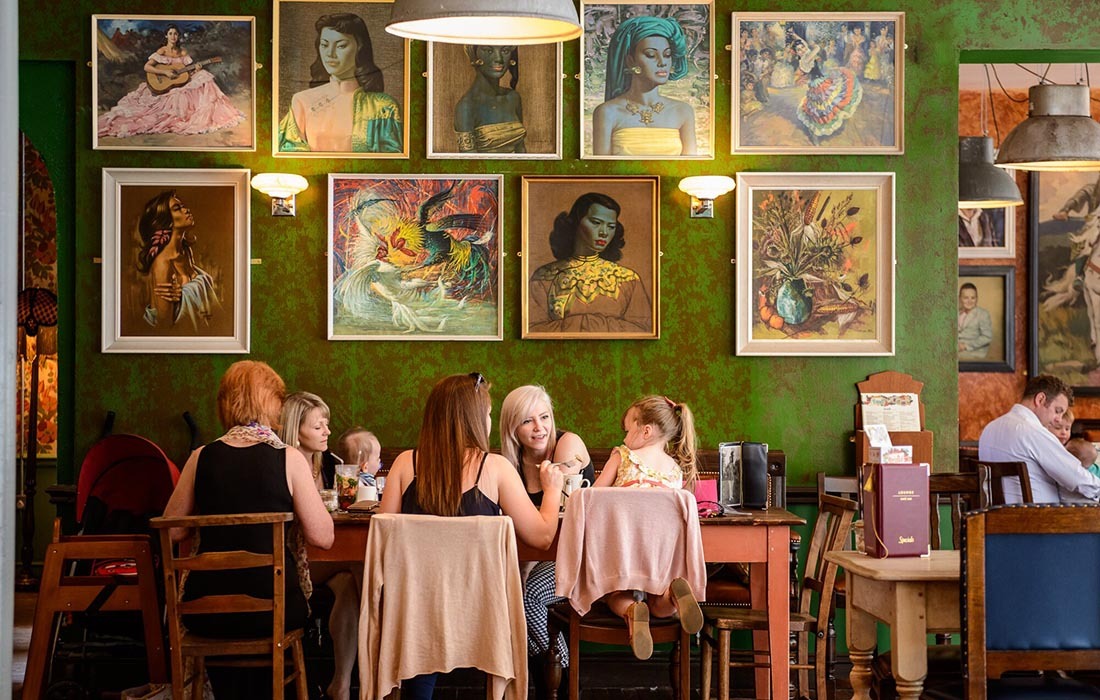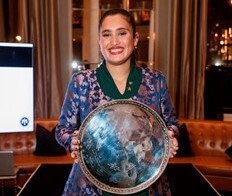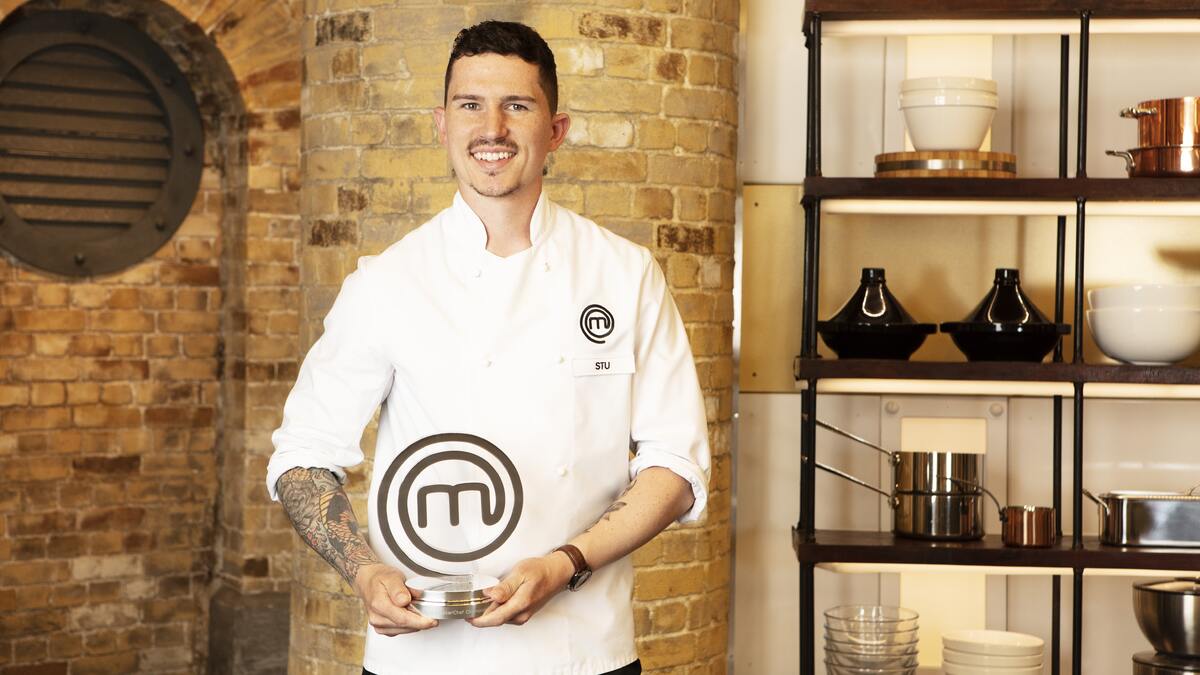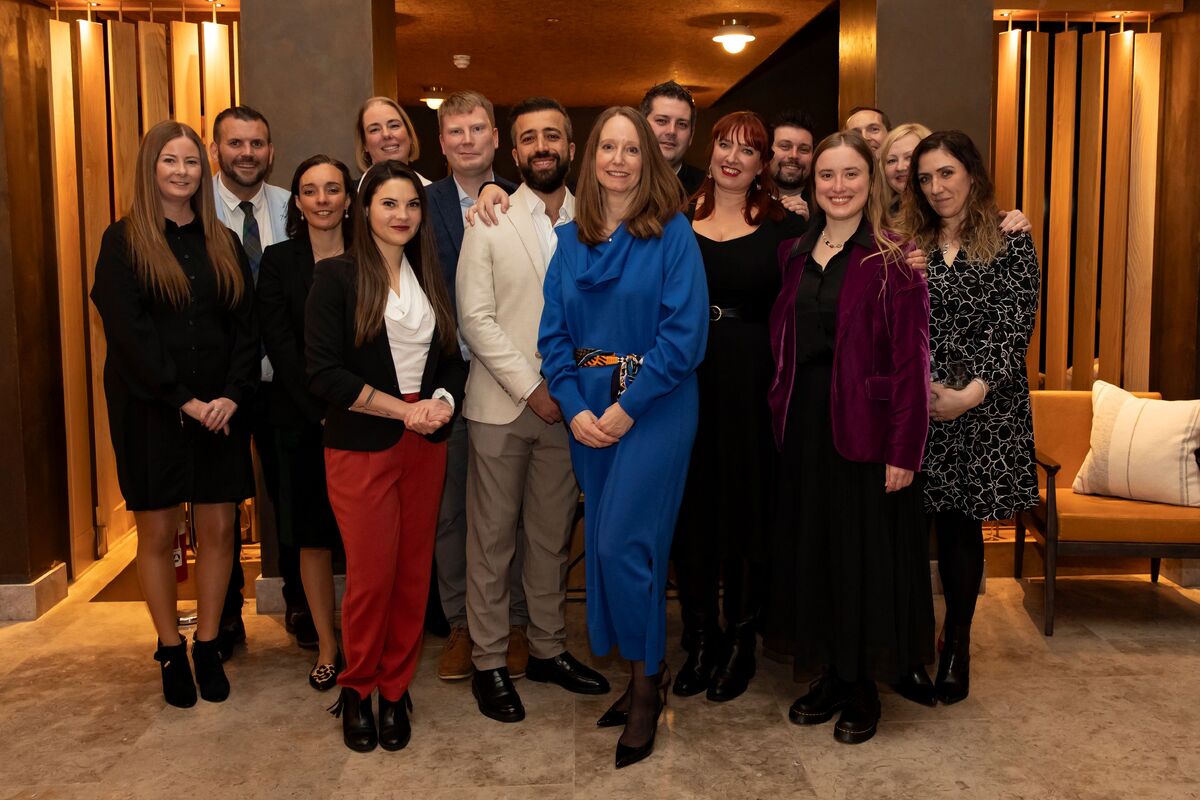Regional heats of the Nestlé Toque d'Or 2008 live at Hotelympia
As the Nestlé Toque d'Or competition reaches its 20th year, the search is on for Britain's most talented college catering team of 2008.
After an absence of six years, the heats are back at Hotelympia, and 16 teams (see panel) have been selected from paper entries submitted by colleges the length and breadth of the UK to fight for a place in the Grand Final.
To reach this stage, the teams of six students - four chefs and two front-of-house staff - have developed an idea for a themed restaurant and a three-course lunch menu typical of their establishment. Competition rules demand that all menus start with a soup and that the main course reflect current trends for nutrition and healthy living, with the final dish not exceeding 600 calories. And ingredient costs for the three courses must not exceed £8 per head.
At Hotelympia, each of the teams will take over the kitchens of La Parade des Chefs for three hours to prepare and serve their menus to 20 invited guests. They will also be required to give a presentation - complete with "mood board" - about the business side of running their restaurant.
For five teams, the journey will continue to the Grand Final, where they will battle it out for the coveted title of 2008 champions and a place on the Toque d'Or study tour. The winning college will also receive catering equipment to the value of £4,000, with each of the runners-up receiving £2,000-worth of equipment. The five successful teams will be announced on 21 February.
The challenge at the final is for the teams to serve their menus to 100 paying members of the public at their restaurants, which they will temporarily set up at a high-profile event to be announced after the heats have taken place. As preparation, each team will work with a chef-mentor who will help to fine-tune their dishes and ensure they are prepared for the larger number of covers required.
Having been involved with Toque d'Or for many years, formerly as a mentor and now filling the role of culinary manager for the Grand Final, Food Development Association chairman David Grainger says that the competition really pushes the teams to the maximum.
"For me, the Nestlé Toque d'Or has always been about letting the next generation of chefs shine - and encouraging that talent into industry," he says. "They need to demonstrate real creativity and teamwork, as well as show a tough judging panel that they have what it takes in commercial terms. For those who get through, it's a badge of honour on their CV and a stepping stone to their first full-time job in hospitality."
While the quality of the food on the menu is critical, it is the total meal experience - the atmosphere, the service and the people both front and back of house - on which the team will be judged.
James Tanner, co-proprietor of Tanners Restaurant in Plymouth, was chairman of judges in last year's Grand Final. "It's so important to nurture young cheffing talent," he says, "but also to give the students a taste of professional life - it's a tough industry, but it's also incredibly exciting and rewarding. This competition really stretches the students - they have to work well together under pressure and produce great food, on time and within the confines of a good business model."
Aiming to retain the title they won in last year's competition is Blackpool and The Fylde college, whose restaurant "Seventh Floor at the Palace Casino", inspired by Blackpool's bid to host a Las Vegas-style super casino, won the judges' vote to crown them the 2007 champions.
The college's lecturers have found the team's success a motivational tool for other hospitality students. "As a lecturer, what's great for me about the competition is watching six individuals who haven't worked as a team gel and develop together," says Rennie Wilkinson, who guided the 2007 champions. "The competition gives our students something to aim for, particularly since we won in 2007. It's spurring our final-year students on to do well, to get the chance to be part of the next team."
Hoping to steal their title is North Devon College, which first entered a team in 2007, when it reached the final. Lecturer Tom Lewis believes that the competition makes a valuable contribution to his students' education. "We work in such a competitive industry that it's a huge challenge for students to get the top jobs after leaving college," he says. "To give our students the best advantage, we need to prepare them as much as possible to compete with the best and thrive in their chosen careers."
Indeed, taking part in the competition has reaped huge rewards for one former competitor, James Hill. As a catering student, Hill was part of the team from Carlisle College that won the title in 2004, and the experience he gained through taking part helped prepare him for the pressures of working in his first professional kitchen - alongside Angela Hartnett at the Connaught in London's Mayfair.
Three years on, Hill owns his own restaurant, the Bijou in Carlisle, and he considers the Toque d'Or to have launched his career and taught him some invaluable business lessons.
"The Nestlé Toque d'Or has had a huge impact on my career," he says, "and I'm sure that, if I hadn't taken part, I wouldn't be where I am today. The competition gave me a really good insight into the whole concept of catering that has helped me in the running of my own business. I realised that running a restaurant is more than just cooking and serving up dishes - it's about what your business represents, how to plan it successfully and the messaging you wish to place behind it."
The winners of the 2007 competition, from Blackpool and The Fylde College
Toque d'Or history
The original premise of Nestlé Toque d'Or, now in its 20th year, remains unchanged: to reward young catering students who are prepared to invest time in developing their knowledge and skills.
The original competition focused on competing individuals' ability. In the mid-1990s it changed, and it is now entered by a team of chef and front of house students. In 2000, the remit was widened further to align more closely with what is happening in the industry.
Now, all teams are required to come up with a restaurant concept - to use their imagination, creativity and business skills to create a theme for a restaurant, which is then reflected in the menu. A solid theme, a complementary menu and strong execution are the hallmarks of any successful operation in today's fiercely competitive market. In this way, the competition provides valuable insight for an aspiring chef or maitre ‘d on how the whole catering offer comes together.
This year, for the first time, the rules of the competition stipulate that the main dish delivered by the teams must be a healthy option, having a maximum calorie count of 600. This new move reflects of the significant shift in customer demand for tasty, healthy and nutritious food when eating out.
The Final 16
- Blackpool and The Fylde College
- Carlisle College
- City College, Plymouth
- City of Bristol College
- Glasgow Metropolitan College
- Lewisham College, London (two teams)
- North Devon College, Barnstaple
- North Warwickshire and Hinckley College
- Southgate College, London
- South Kent College, Folkestone
- South West College, Omagh
- Thanet College, Kent
- Trafford College, Greater Manchester
- Westminster Kingsway College, London
- Wiltshire College, Salisbury



